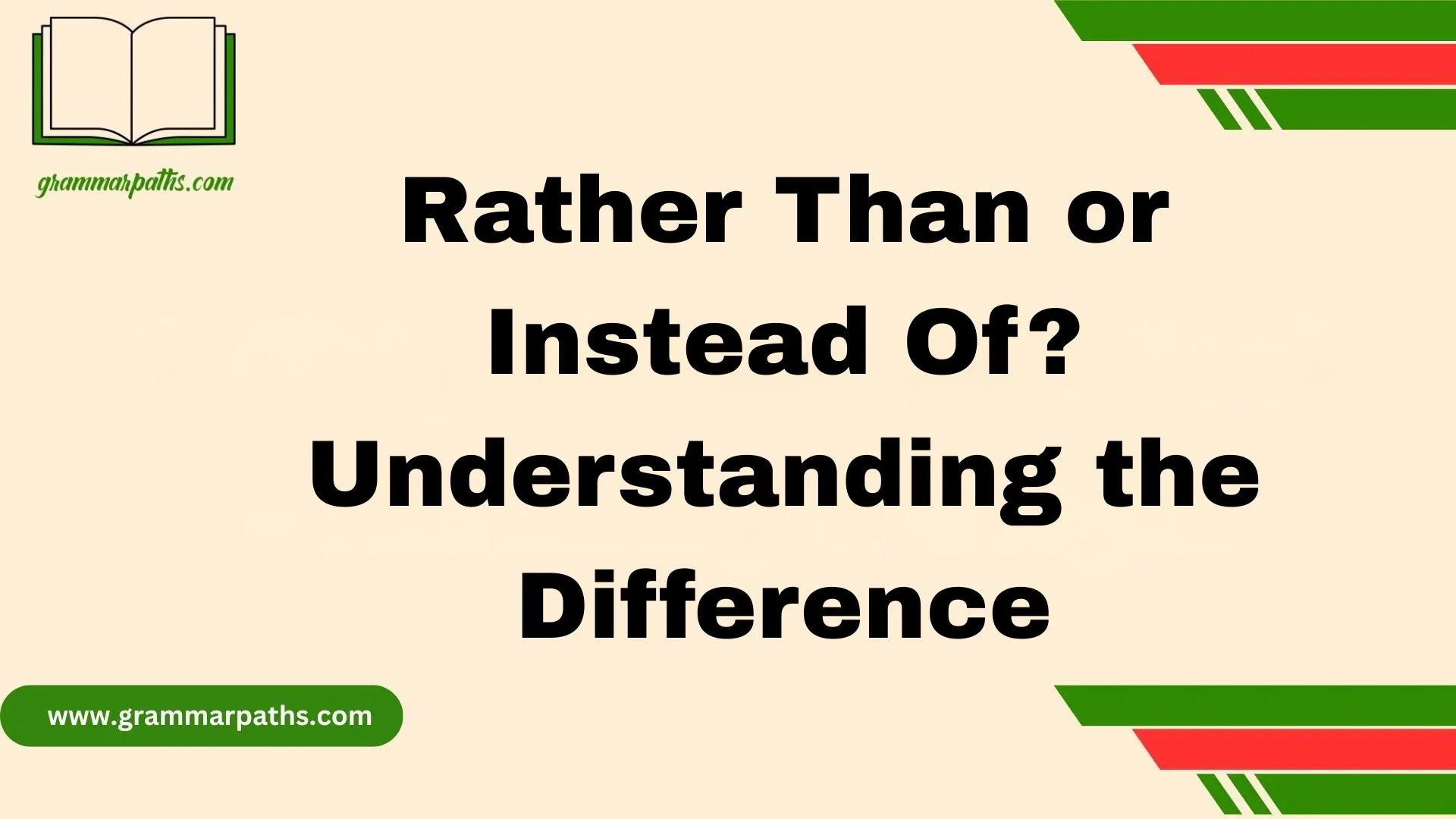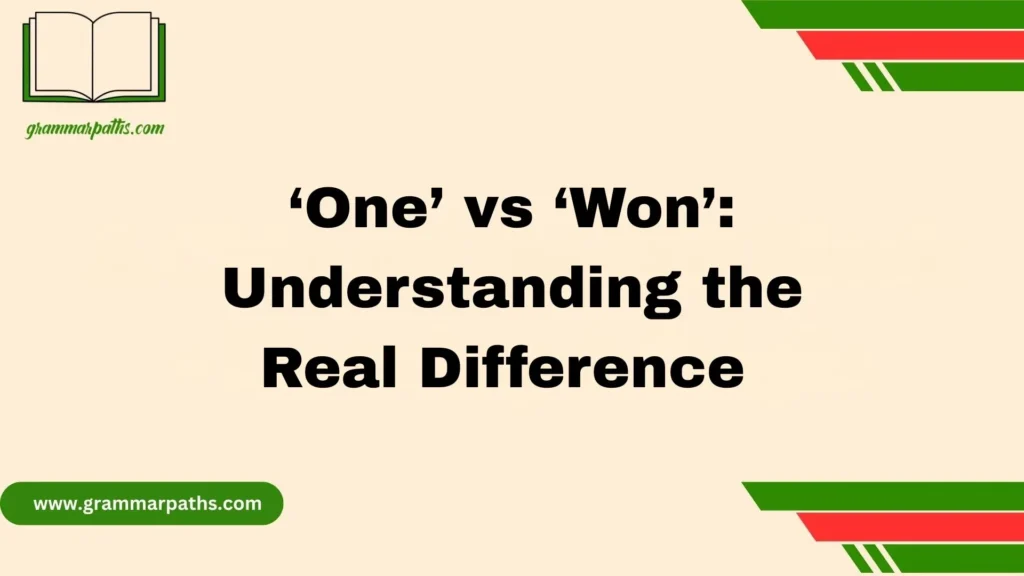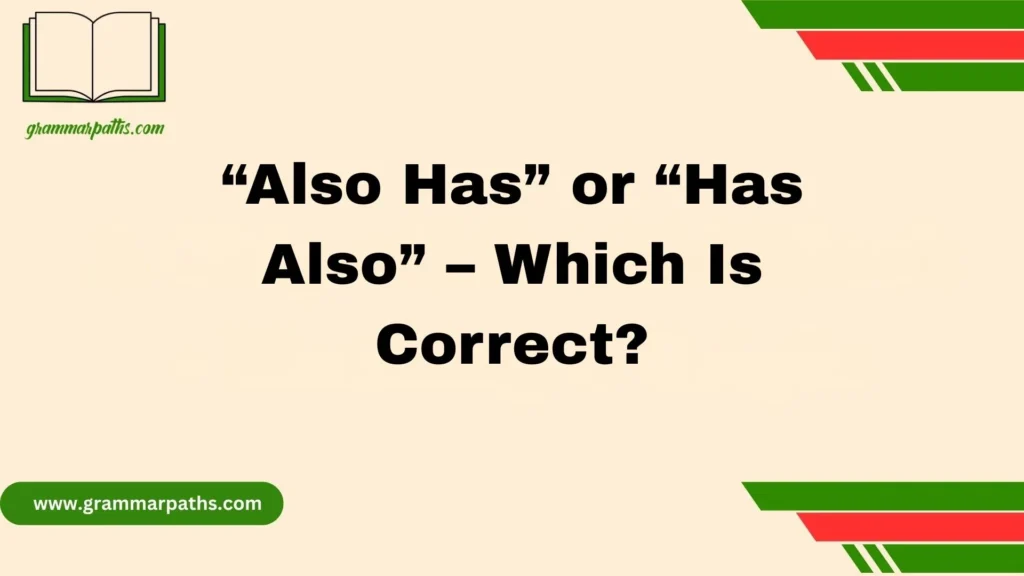When I first started editing academic documents, I noticed how fluent speakers and non-native writers often struggled with whether to use rather than or instead of. These phrases, though naturally used, carry subtle nuances that can deeply affect the tone, meaning, and overall communication in both casual and professional settings. Realizing this difference was a major step in my own journey of mastering the language. I found that the right phrase could enhance clarity, while the wrong one might break the flows of a polished line. The impact is especially strong in high-stakes presentation or writing, where choosing wisely delivers high-impact results. Over time, I began recognizing distinctions, following rules, and learning how to teach these patterns with simple examples and a comprehensive approach.
Through this process, I came to know how crucial it is for people to discover the context, the structure, and the grammar behind each term. While rather often shows preference, instead signals an alternative or substitution. These adverbs indicate different degrees of choice, which makes understanding their usage essential. For instance, a quick guide or even a quick-reference chart often helps learners. Still, nothing replaces consistent practice and informed choices in real-world content crafting. When I worked with casual writers and professional ones alike, I saw how natural phrasing could connect ideas, deliver confidence, and fill the gap where guessing once stood. Using the tools of clear phrasing, a person can build confident, true communication that feels both helpful and polished.
Core Meanings and Distinction
At the heart of the confusion lies this: “rather than” expresses preference or contrast, while “instead of” expresses replacement or substitution.
- Rather than → emphasizes choice, preference, or contrast.
- Example: “She decided to walk rather than take the bus.”
- The focus is on what she prefers.
- Instead of → emphasizes substitution or replacement.
- Example: “She took a taxi instead of the bus.”
- The bus is replaced by the taxi.
Here’s a quick breakdown:
| Phrase | Core Meaning | Typical Use Case | Example |
| Rather than | Preference, contrast | Choosing one thing because it’s preferred | “He plays soccer rather than basketball.” |
| Instead of | Substitution, replacement | Replacing one option completely | “He ordered soup instead of salad.” |
Notice how one focuses on preference while the other focuses on replacement. This is the core difference you’ll carry with you.
Grammar and Structure
How “Rather Than” Works
- Functions as a conjunction: connects clauses or actions.
- “I’ll call you rather than wait.”
- Functions as a preposition: connects nouns or gerunds.
- “She chose running rather than walking.”
- Can connect unequal structures (noun vs. verb), but balance is preferred for clarity.
How “Instead Of” Works
- Functions only as a prepositional phrase.
- Always followed by a noun, pronoun, or gerund (-ing verb form).
- “He wrote an email instead of calling.”
- “We ate fruit instead of candy.”
Quick Grammar Table
| Expression | Role in Sentence | What Follows? | Example |
| Rather than | Conjunction / Preposition | Verb, gerund, or noun | “He sang rather than danced.” |
| Instead of | Prepositional phrase | Noun, pronoun, or gerund | “She slept instead of studying.” |
When to Use “Rather Than”
Use rather than when your focus is on preference or contrast rather than full replacement.
- Preference between actions:
- “I’d watch a movie rather than read tonight.”
- Highlighting contrast:
- “They succeeded because of teamwork rather than luck.”
Correct Structures
- With verbs: “He prefers to drive rather than fly.”
- With gerunds: “She enjoys cycling rather than jogging.”
- With nouns: “He picked water rather than soda.”
Common Mistakes
“He prefers pizza instead of pasta.” → This sounds odd if the goal is to show preference.
“He prefers pizza rather than pasta.”
Remember: rather than works best for comparisons and preferences.
When to Use “Instead Of”
Use instead of when your focus is on replacement or substitution.
- Direct replacement:
- “She wore sneakers instead of heels.”
- Substitution in action:
- “They emailed instead of calling.”
Correct Structures
- Always followed by a noun or gerund:
- “He smiled instead of frowning.”
- “She used honey instead of sugar.”
Common Errors
“He prefers coffee instead of tea.” (This suggests replacement, not preference.)
“He prefers coffee rather than tea.”
Side-by-Side Comparison
Here’s a quick reference table showing how the two differ:
| Context | With “Rather Than” | With “Instead Of” |
| Preference | “I’d study math rather than history.” | X (awkward here) |
| Replacement | X (not natural) | “She ordered tea instead of soda.” |
| Contrasting reason | “He succeeded by working hard rather than luck.” | X (awkward) |
| Everyday activity | “We chose to stay in rather than go out.” | “We stayed home instead of going out.” |
Everyday Usage and Context
In formal writing (academic papers, business reports):
- Rather than often appears because it signals preference or logical contrast.
- “The company invested in training rather than short-term incentives.”
In casual conversation:
- Instead of is more common because people often talk about substitution.
- “We grabbed burgers instead of pizza.”
Both are grammatically correct, but tone matters. In academic writing, “rather than” feels sharper and more precise, while “instead of” feels conversational.
Advanced Nuances
With Verbs: Infinitives vs. Gerunds
- “He decided to text rather than call.” (preference)
- “He texted instead of calling.” (replacement)
Tone and Emphasis Differences
- Rather than softens the choice. It implies both options are available, but one is preferred.
- Instead of is firmer. It suggests one option is completely replaced.
Cases Where Both Work but Mean Differently
- “He walked to work rather than drive.” → He prefers walking.
- “He walked to work instead of driving.” → He replaced driving with walking, maybe due to circumstance.
Practical Examples and Exercises
Mini Quiz
Choose the correct option:
- “She chose to paint ___ watch TV.”
- (Rather than / Instead of) → Rather than
- “We used lemons ___ limes.”
- (Rather than / Instead of) → Instead of
- “I prefer to jog ___ swim in the morning.”
- (Rather than / Instead of) → Rather than
- “He typed the message ___ handwriting it.”
- (Rather than / Instead of) → Instead of
Corrected Errors from Learners
- “I enjoy books instead of movies.”
- “I enjoy books rather than movies.”
- “We stayed at home rather than going to the park.” (Gerund mismatch)
- “We stayed at home instead of going to the park.”
Conclusion
Learning to use rather than and instead of is not just about memorizing rules; it’s about noticing the subtle nuances that shape how your sentence flows and what meaning it carries. In both academic and professional settings, choosing the right phrase can enhance clarity, deliver confidence, and make your communication sound more natural and polished. With practice, real examples, and a clear guide, anyone—from non-native writers to fluent speakers—can master these distinctions and use them wisely in everyday writing and presentation.
FAQs
Q1: Is “rather than” the same as “instead of”?
No. Rather than usually shows a preference between two things, while instead of suggests a direct substitution or alternative.
Q2: Can I use both in academic writing?
Yes, but you must use them carefully. In academic documents, rather than is often used for showing comparisons, and instead of works best for showing replacement.
Q3: Why do non-native writers confuse them?
Because the phrases can look similar, and their usage overlaps. Without real examples or a quick-reference chart, it’s easy to miss the distinctions.
Q4: What’s a quick way to remember the difference?
Think of rather than as showing preference (choice), and instead of as showing replacement (substitution).
Q5: How can I improve using them correctly?
Follow a comprehensive approach: read examples, notice phrasing in context, and apply consistent practice in your own writing. Over time, you’ll gain the confidence to use both phrases naturally.

Emma Brooke is a passionate language expert and contributor at GrammarPaths.com, where she helps learners navigate the complexities of English grammar, idioms, and effective writing. With a strong academic background and years of teaching experience, Emma excels at turning tricky grammar rules into simple, practical lessons that readers can easily grasp.












